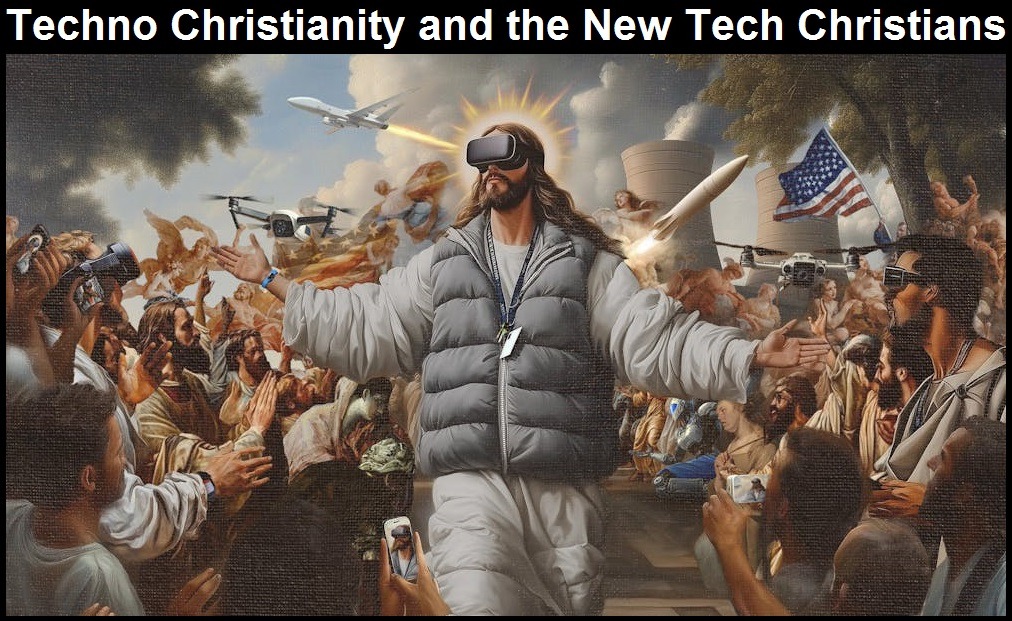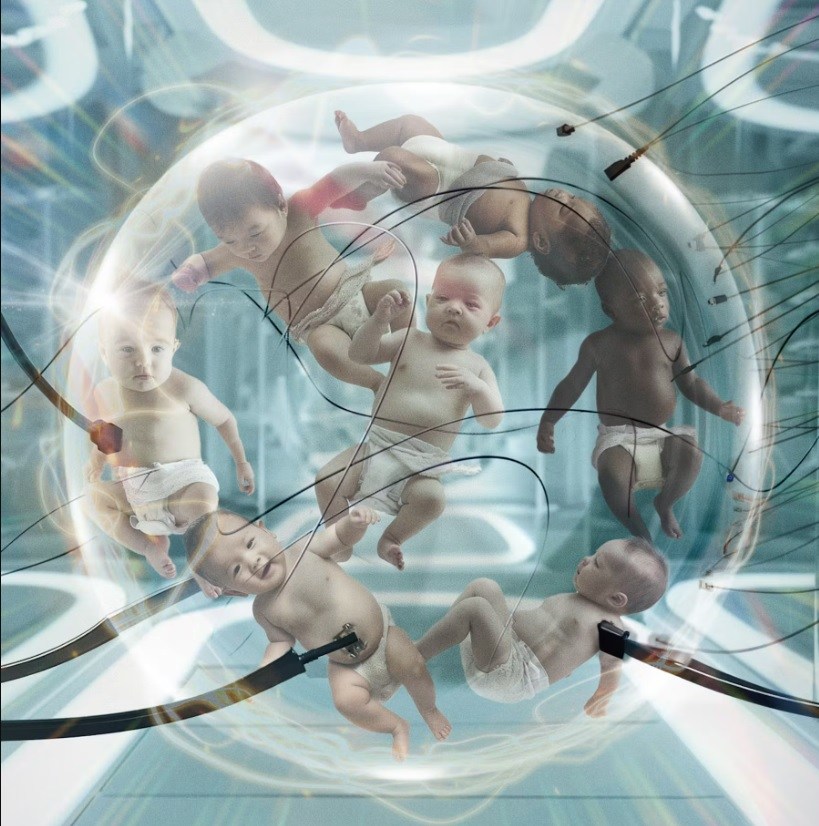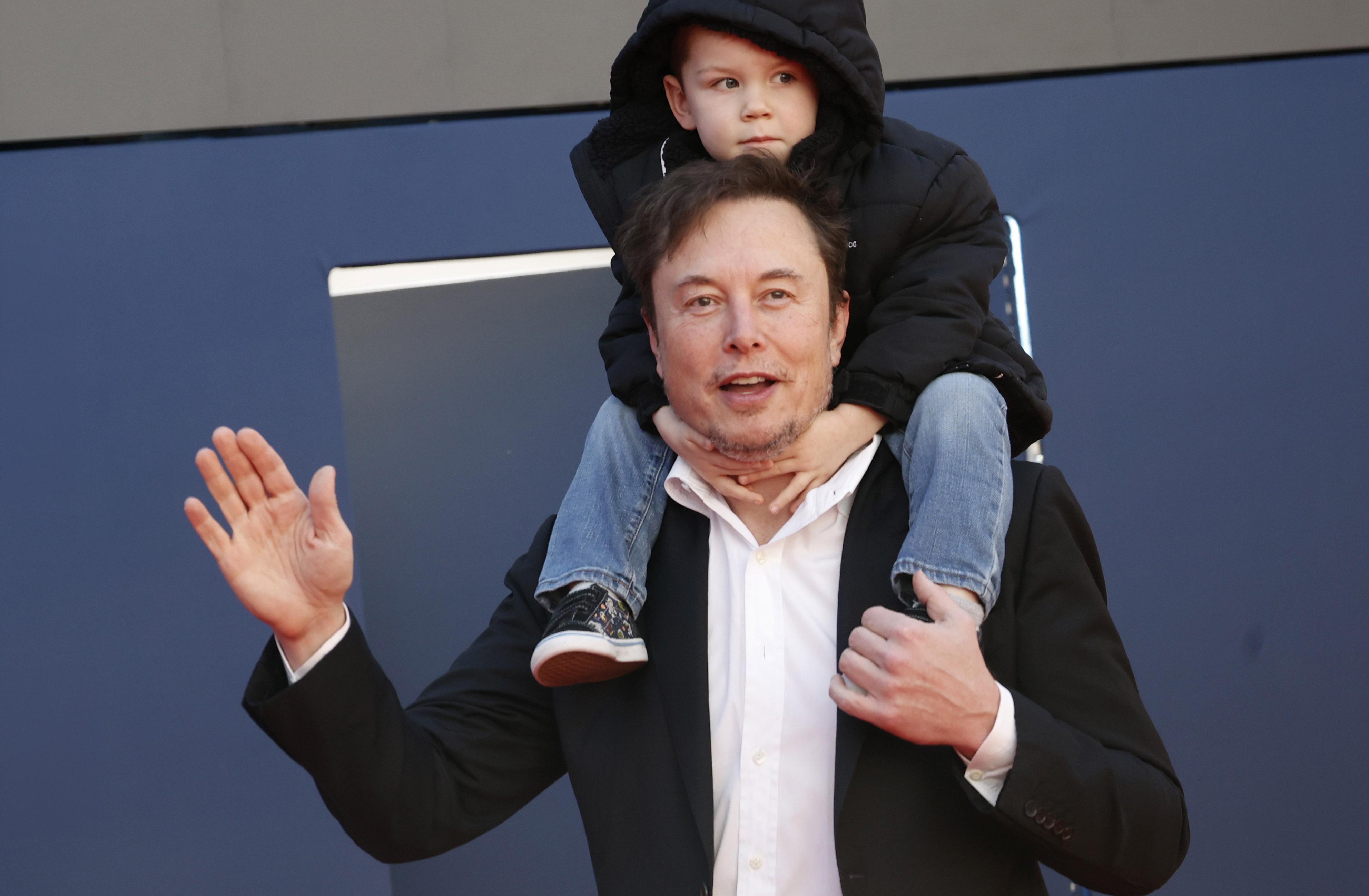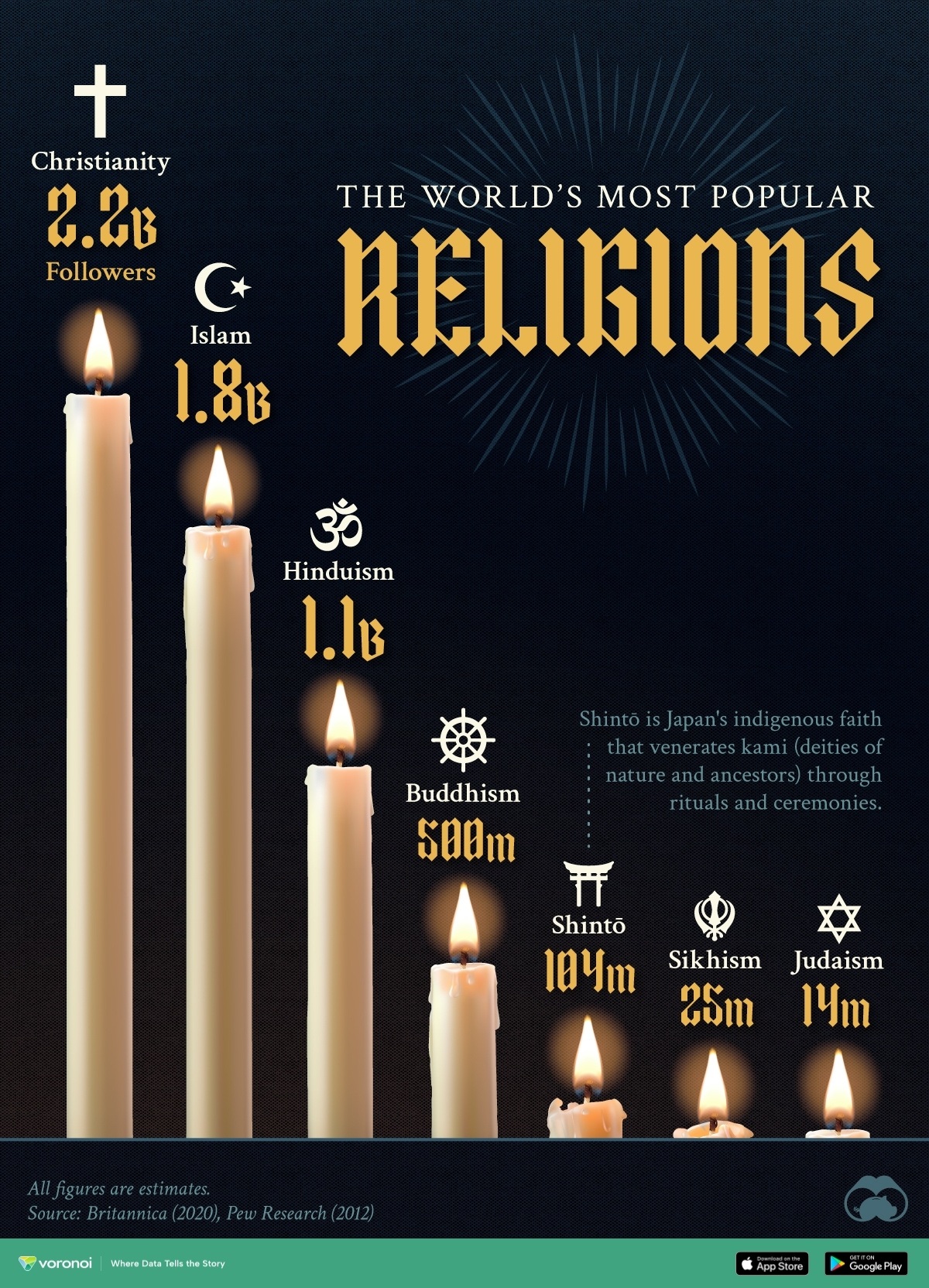
Original image by Clark Miller. Source.
by Brian Shilhavy
Editor, Health Impact News
Julia Black of The Information has just published an article about the recent growth of Christianity in the United States among those in the Technology sector, who are primarily millennials.
Her headline is: The Antichrist and the New Apostles – Why many in tech are turning to devout Christianity.
In her investigation for writing this article, she attended a worship service at Epic Church in downtown San Francisco. The Sunday she attended, Epic Church was opening a $12 million space just down the street from the headquarters of Pinterest and Airbnb.
The pastor of Epic Church, Ben Pilgreen, reportedly told her: “We really feel called to this particular place and its people.”
The church has several Big Tech investors and billionaires who are members and leaders of the church.
I attended the services as a guest of two of the more prominent people within Epic: Trae Stephens, the Founders Fund partner and Anduril co-founder, and his wife, Michelle Stephens, chief revenue officer at Felt, a healthcare software startup.
“People think church is just for the poor, the marginalized, the visibly in need, but the highly rich and famous are just as much in need,” Michelle told me.
Then she paraphrased a bit of scripture: “It’s harder for a rich man to pass through the eye of the needle than for the poor man to see God.”
According to Epic Church pastor Ben Pilgreen, those who follow these Big Tech superstars are a major draw to bringing people into his church.
Pilgreen is glad the Stephenses have assumed leading roles among his flock.
“Trae and others that are very respected in that world” have proven to be powerful evangelists for Epic’s mission, Pilgreen explained.
“We’ve had people show up to events and end up coming on Sundays because they heard a podcast with Trae.”
(Source. Emphasis mine.)
Black goes on to explain how many of Tech’s “elite” are turning to Christianity.
Epic Church is one of the epicenters of a societal shift among the tech elite: More and more, Christianity has become a growing, constant part in many of their lives.
Some of these people are long-time Christians who feel newly emboldened to publicly embrace their faith. Others are brand-new adherents.
Together, they’ve formed a movement with real breadth that does not have roots in any one Christian denomination. It spans the country, fueled by a swirling mix of different proponents.
Traces of this “sea change,” as one tech Christian described it to me, exist in nearly every echelon of the industry—from the newest startup scenes to the rooms filled with the industry’s titans.
The defense tech founders in El Segundo, Calif., for instance, have adopted a form of muscular Christianity, linking patriotism, masculinity and athletic discipline with religious moral character.
Meanwhile, Peter Thiel has been on an ongoing, one-man speaking tour about the Antichrist, which he warns is most likely to come in the form of a one-world government.
And Elon Musk, who has risen to become the industry’s most influential figure, appears to have ditched his longtime agnosticism: In September, he published a poem on X that decried atheism as “an empty space” and concluded thusly: “Maybe religion’s not so bad/To keep you from being sad.”
“Almost every church I’m aware of is growing in tech—Anglican, Episcopal, Presbyterian, Baptist, Catholic. This is much wider than just a single church, single person. It’s much more durable,”
said Ryan Delk, CEO of Primer, a San Francisco–based education tech company.
That anyone in tech would feel comfortable embracing Christianity marks an astonishing change. As recently as the last decade, adherence to religion was seen as largely anathema within an industry that prided itself on the rational application of math and science to achieve prosperity.
Indeed, Christianity has never been a hallmark of tech’s home base—the San Francisco Bay Area. Yet the Bay Area is a part of the country that has been defined by an unquenchable curiosity in spirituality and collective philosophizing, though that has tended to push people more toward hippiedom, Burning Man and body optimization in recent decades.
Exactly why Silicon Valley has grown more comfortable with Christianity and religion defies any one straightforward explanation.
Many Christians in tech I spoke to seemingly long for any in-person gathering that could offer them escape from a post-pandemic world where much of life takes place virtually.
And many of them hope to escape the same anxieties that enshroud much of America around global instability and economic uncertainty. (Full Article. Subscription needed.)
The Rise of Peter Thiel as a Christian Leader

Billionaires Donald Trump and Peter Thiel and their “secret handshake.” Image source.
According to Black, most in the Tech world attribute the new Techno Christianity movement to Billionaire Peter Thiel.
If there is one person at the center of tech’s shift toward Christianity, it is billionaire Peter Thiel, a devout Christian who like many many other techno-Christians doesn’t publicly align with any one denomination.
Several of the young tech founders and investors I spoke to, from Los Angeles to Austin to New York, told me they had been influenced by direct conversations with Thiel, as well as his frequent talks on religion and his work spreading the ideas of theological philosopher René Girard.
“For me, the logic was super simple. It was: Well, [Thiel] is really smart and interesting. And he’s pulling from René Girard, who’s really smart and interesting. And both of them are pointing back to the figure of Christ. Shouldn’t I look into that?”
said David Perell, founder of Write of Passage, a tech-focused online writing school, who has met Thiel a few times.
In Thiel’s religious talks, he often warns against identity politics, wokeness and scapegoating the wealthy, while preaching techno-optimism and anti-globalization.
He also maintains an almost obsessive fixation on the apocalypse and the Antichrist, a Biblical villain whose arrival signals the end of the world, according to the New Testament, and depicted in movies like “Rosemary’s Baby” and “The Omen” as the son of Satan. (Full Article. Subscription needed.)
Peter Thiel is an entrepreneur, venture capitalist, and political activist.
A co-founder of PayPal, Palantir Technologies, and Founders Fund, he was the first outside investor in Facebook.
As of July 2024, Thiel had an estimated net worth of US$11.2 billion and was ranked 212th on the Bloomberg Billionaires Index.
He supported Donald Trump’s first Presidential campaign.
Thiel grew up in an Evangelical Christian household but, as of 2011, described his religious beliefs as “somewhat heterodox”, stating:
“I believe Christianity is true but I don’t sort of feel a compelling need to convince other people of that.” (Source.)
Thiel married his long-time partner Matt Danzeisen in October 2017, and they have two young children.
According to an article published in DailyMail.com in 2023:
Thiel had been in a romantic relationship with model Jeff Thomas since late 2019. Many in their elite gay circle told DailyMail.com that their romance was an ‘open secret’ – but it is unclear if Danzeisen was aware of his husband’s infidelity.
Jeff Thomas died after plunging from a Miami high rise last month – had a messy confrontation with his husband during the couple’s New Year’s Eve party after Thomas was discovered among the guests, DailyMail.com can now reveal.
Thomas was in a three-year relationship with PayPal co-founder Thiel, who put him up in a $13 million dollar mansion tucked in the Hollywood Hills, gifted him with lavish European trips, a $300,000 sports car, and access to the most coveted parties in town.
And now their circle of friends believe that Thomas’s death, a suspected suicide, was related at least in part to his depression over the incident, after which he was financially cut off from Thiel’s largesse.
The exchange took place when Matt Danzeisen, Thiel’s husband and longtime partner, arrived separately to join the New Year celebration, only to discover Thomas was one of the partygoers at the posh event held at Thiel’s Miami Beach compound. (Full article.)
The Techno-Christian’s “Pro Life” Position: Designer Superbabies

Image by by Clark Miller. Source.
Since gay people cannot produce children, and if the gay lifestyle becomes popular enough in the Techno Christian religion, how can the human race survive without producing children?
The new Techno Christians think they have an answer to that problem: New designer superbabies created by technology.
This is from an article published in The Information earlier this year, with Julia Black again, along with Margaux MacColl.
Dawn of the Silicon Valley Superbaby
Billionaires like Sam Altman, Peter Thiel and Brian Armstrong are behind a boom in fertility tech startups developing sophisticated embryonic testing, sperm freezing—even artificial wombs.
Excerpts:
When venture capitalist Jack Abraham first began dating his wife, Gabriella Massamillo, he insisted on one condition: that when they were ready to have children, she’d be willing to conceive using in vitro fertilization.
Abraham had lost both his mother and his aunt at a young age to ovarian cancer, linked to a rare mutation in their BRCA-1 genes. As a carrier of the mutation, he didn’t want to leave their children’s fate to chance. He wanted to genetically test their embryos before selecting which ones to implant via IVF.
“When we were starting on this journey, I thought, ‘Who better to chat with than Noor?’” Abraham recalled.
That would be Noor Siddiqui, founder of Orchid, a San Francisco–based genetic testing startup that counts Coinbase’s Brian Armstrong, Figma’s Dylan Field and 23andMe’s Anne Wojcicki as investors.
For $2,500 an embryo, Orchid customers can screen for monogenic disorders (which are caused by a single gene) as well as more-complex polygenic factors, such as predispositions to diabetes, Alzheimer’s disease and a host of other health issues.
Customers receive a whole-genome embryo report through Orchid’s online platform, as well as multiple consultations with a genetic counselor to walk them through the findings before an embryo is implanted in the mother’s womb.
Abraham met Siddiqui when she was a Thiel fellow and he was the program’s executive chair. His personal interest in genetics prompted him to invest in Orchid in 2023 and then seek out Siddiqui earlier this year when he and Massamillo were ready to start their own family planning.
He and his wife produced nine embryos via IVF, and through Orchid’s screening they discovered that four had the BRCA mutation.
They also learned a lot more about their batch of embryos and which they should consider transferring when the time comes: One was missing a chromosome, while another had a slightly elevated risk of atrial fibrillation.
“I was happy to have as much data as the company was willing to provide,” Abraham said.
“It’s like a dashboard of your future children. That’s incredible that exists on the internet.”
Abraham and Massamillo are far from the only ones interested in Orchid. Shivon Zilis and Elon Musk used the service to select the embryo for their third child together, according to two sources who’ve had conversations on the subject with Zilis, who is also an executive at Musk’s Neuralink brain-implant startup. (Neither would comment for this story.)
The height of Silicon Valley society—names like Peter Thiel, Sam Altman and Vitalik Buterin—have all tossed money into fertility tech. Like Abraham, some of these investors are also potential customers for these services.
And while it can seem like some of these startups may be creating products that only appeal to the rich technorati—limiting the businesses’ commercial potential—the investors may not care all that much.
Even if the startups fail to find a wide audience, it’s an opportunity to be among the earliest and first customers and immediately take advantage of their technology.
Some of the ideas discussed in Silicon Valley circles sound more like social engineering than advanced biotech. Bucher envisioned,
“In the future, people will unbundle the three different functions that you look for in the other gender: reproduction, family and sexuality.”
She even predicted that people will screen potential mates based on DNA analysis.
“Would you have the healthiest, smartest, most capable child with just the one person you love? Or do you know other people you can have the absolutely best child with?” she said.
Full Article. Subscription needed.
Traditional Christian values and beliefs, however, state that human life begins at conception, when a man’s sperm impregnates the female human egg.
Traditional Christianity sees an “embryo” as the beginning of human life, which then sees abortion as murder.
Creating “superbabies” through IVF where the unwanted “embryos” are then destroyed, would then be genocide, and simply a modern-day version of eugenics.

Elon Musk and Shivon Zilis used Orchid’s genetic screening service for their third child; above, Musk appears with one of his dozen children earlier this year. Source.
Nevertheless, Donald Trump made a campaign promise to provide “free IVF” coverage to anyone who wants it, since generally only the rich can now afford it.
Donald Trump’s call to mandate free IVF coverage baffles Republicans in Congress
Trump’s plan drew a mix of confusion, skepticism and opposition from his GOP allies on Capitol Hill. It even surprised his own advisers, a source said.
Donald Trump’s call for mandating free access to in vitro fertilization has puzzled congressional Republicans, drawing a mix of skepticism and outright opposition across the party spectrum, from center-right to far-right lawmakers.
Some worried about the high cost of such a policy. Others confessed they don’t understand what he’s proposing to do. Yet others wondered aloud whether Trump was serious.
And numerous Trump allies said his announcement, in an interview with NBC News last month, came as a surprise to them. (Source.)
It is estimated that such a policy would cost taxpayers up to $7 billion. (Source.)
Also, having a baby’s entire genome and everything about them stored in a database somewhere is a Technocrat’s dream scenario.
Christianity is a Dangerous and Evil Religion

Christianity is the most popular religion in the world.
Most American Christians sincerely believe that the Christian religion is taught in the Bible, or at least their version of Christianity is, they believe.
But nothing could be farther from the truth.
The New Testament documents that record the historical life of Jesus, as well as his teachings, are almost completely the opposite of the Christian religion.
The believers and disciples of Jesus were a persecuted class, and by far the minorities in society who went against the tide, not riding along with it.
No new religion was started, as the original apostles and disciples all came out of the Jewish religion and were considered a minority small sect of Judaism. See:
Fact Check: “Christianity” and the Christian Religion is NOT Found in the Bible – The Person Jesus Christ Is
As non-Jews began to follow the teachings of Jesus, some of them were referred to as Christians, beginning at Antioch.
But they were not viewed favorably by the believers, most of whom came from a Jewish background.
They took the meaning of the Gospel, the “Good News” of “grace” that Jesus paid the penalty for mankind’s sins with his execution by the Jews, and subsequent resurrection from the dead which defeated death, as a blanket reason to do whatever they wanted to do since they did not have to follow the Law of Moses anymore.
This teaching has been referred to as a form of “Gnosticism” or “Antinomianism”, which leads to sexual immorality and many other perversions.
Jesus spoke against these Christians as evil. See:
The Demonic Roots of Christianity: The Christians Jesus Said He Hated
The false believers and false prophets that are referred to so often in the apostles’ letters (epistles) to the congregations during the First Century, were generally divided into two groups: The “Party of the Circumcision” who were Jews and believed believers had to keep following the Old Testament Law, including being circumcised, and are more commonly known as the “Zionists” today, and the Christians who taught that one could do whatever one wants to do because they were not under the Law anymore.
The practice of these Christians included participating in pagan temple worship and the temple prostitutes with orgy-like celebrations.
The fact that they “crept in unnoticed” to these gatherings means that they at least had an intellectual “belief” that Jesus Christ was the Messiah, but they denied Jesus by their evil actions and lifestyles, proving that they didn’t really know Jesus at all.
Beloved, while I was making every effort to write you about our common salvation, I felt the necessity to write to you appealing that you contend earnestly for the faith that was once for all time handed down to the saints.
For certain people have crept in unnoticed, those who were long beforehand marked out for this condemnation, ungodly persons who turn the grace of our God into indecent behavior and deny our only Master and Lord, Jesus Christ. (Jude 1:3-4 – emphasis mine.)
The early believers and disciples of Jesus did not follow any religion. They followed Jesus Christ, whom they believed was the promised Messiah that the prophets from the Old Testament times prophesied would come to redeem (buy back) God’s people.
They followed and preached the Truth in Jesus, as fulfilling The Faith, the one and only true Faith, that began with Abel who was murdered by his brother, Cain, in Genesis chapter 4, long before any man-made religions were started.
Please see:
There is Only “One Faith” – Who will “Fight the Good Fight” for “The Faith” in these Evil Last Days?
I left Christianity for good about a decade and a half ago. But I met Jesus and went through the Spiritual Rebirth 45 years ago, and went directly into Evangelical Christianity, mainly because it was the only branch of Christianity that still believed that the Bible was true, and I didn’t think I had too many other options at the time.
And while those of us who have come out of all forms of religion and follow Jesus Christ directly are by far the minority in modern-day culture, we are aligned with Jesus himself and we have, in fact, overcome the world, and have no need for human religious leaders. See:
Have You Overcome the World Yet?
All forms of Christianity have many things in common.
First, they are a business. They can only operate through the contributions of their members. They are all run like any other corporation.
They have a religious leader who acts like the CEO, such as pastors or priests. They all have some kind of leadership structure that acts just like a Board of Directors.
These “directors” are the leading financial members of the church that make most of the decisions. In recent years in the U.S., these influential members have been primarily Wall Street types of leaders, such as lawyers, doctors, and other business leaders.
With this new form of Christianity, the Techno-Christians, they are primarily Silicon Valley billionaires and wealthy business people from the Tech world.
Secondly, their success depends on being accepted by the culture, or the World System.
I intentionally bolded the words of pastor Ben Pilgreen of Epic Church in Silicon Valley above:
“Trae and others that are very respected in that world” have proven to be powerful evangelists for Epic’s mission, Pilgreen explained.
That’s the only way to build a successful business. You have to have something the world wants, and that they are willing to pay for.
But the Way of Jesus is the Way of the cross, the Way of suffering, of shame, of being persecuted, and ultimately even being condemned and put to death, all because you do NOT follow the ways of the world, which is ruled by Satan.
That kind of a religion is not sustainable, just as the pharmaceutical medical system cannot be sustainable if their products actually cured people.
Christianity is built upon the ideology that you need to find a church to belong to and to “feed you” spiritually and meet your needs.
The Way of Jesus is exactly the opposite.
The Way of Jesus is that Jesus has already met ALL of our needs, and that there is nothing else that the World can offer us, and that therefore you need to go into the world, into enemy territory, and tell people the Truth, who is a person, and is the only one who can save them from Satan’s world system.
When you do that, you’ll begin your own congregations of others who need to know the Truth, and who need to meet Jesus Christ personally and be filled with his Holy Spirit.
But you will receive power when the Holy Spirit has come upon you.
You will be witnesses to me in Jerusalem, in all Judea and Samaria, and to the uttermost parts of the earth. (Acts 1:8)
He said to them, “Go into all the world, and preach the Good News to the whole creation.” (Mark 16:15)
I was a Christian for a couple of decades, before I finally left, so I certainly do not intend to criticize all Christians, as I used to be one myself, and I am sure there are many fine people in Christianity, and even among this new Techno version of Christianity.
I am encouraged by this part of Julia Black’s article:
Data suggests the trend toward Christianity in Silicon Valley is more than anecdotal. This year, annual Bible sales leapt 22%.
While Christianity might be the start of your spiritual journey, I encourage everyone to read the source documents directly, and continue seeking the Truth.
If you do that, just be prepared to be led out of Christianity completely, and ask God directly what else you should be doing instead of supporting something that really is not biblical at all.
Related:
Christian Myths: The Bible does NOT Teach that it is Required for Believers in Jesus to “Join a Church”
Comment on this article at HealthImpactNews.com.



